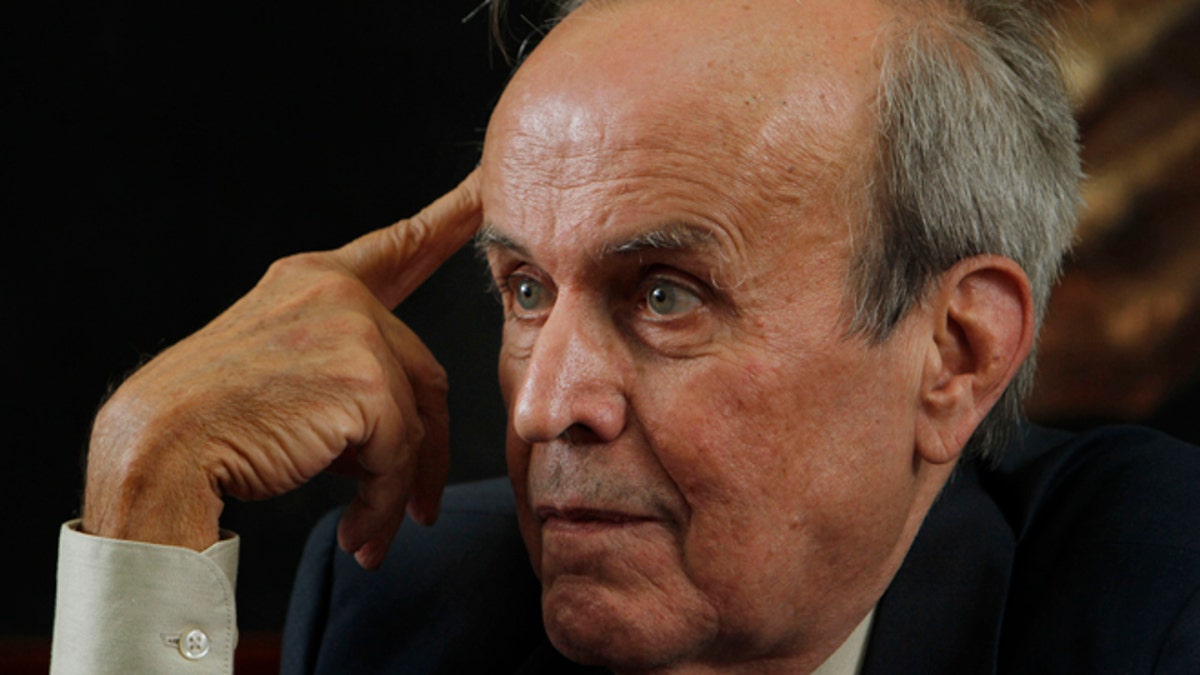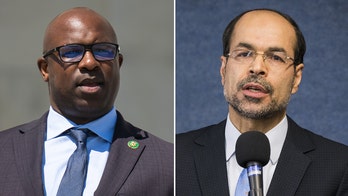
Ricardo Alarcon, long one of the highest ranking officials in the Cuban government. (AP)
Havana – The longtime point man for dealings between the U.S. and Cuba, Ricardo Alarcón is apparently leaving the job he's held for the last 19 years.
Alarcón's name was absent from a list of candidates for the new legislature that was published Thursday in Communist Party newspaper Granma. Under the Cuban Constitution, the National Assembly chooses its president from among its ranks.
Alarcón, who has been parliament chief since 1993, is 75 years old, and President Raúl Castro, himself 81, frequently speaks of a need to promote younger leaders.
"This looks to me like one more part of a move to replace people in their 70s and 80s with people in their 50s in the top jobs in government," said Philip Peters, a Cuba analyst at the Virginia-based think tank The Lexington Institute.
Cuban officials did not immediately respond to a request for comment.
Rumors have suggested as a possible successor Foreign Minister Bruno Rodríguez, who last week was promoted to the Communist Party's powerful Political Bureau.
Rodríguez is on the list of candidates for the National Assembly, as are Fidel and Raúl Castro and rising stars such as Marino Murillo and Miguel Díaz-Canel.
Alarcón was Cuba's ambassador to the United Nations in 1966-1978 and 1990-1992, and served as vice president of the U.N. General Assembly.
Well-spoken and with a perfect command of English, for many years he has been Cuba's go-to guy on U.S. relations. He represented Havana in talks with Washington, Cuba's battle for the return of young raft boy Elian Gonzalez in 2000 and its campaign to demand the return of five Cuban intelligence agents serving long prison sentences in the U.S.
If a younger political leader steps into his job, it would be among the most high-profile replacements to date touching the "historic" generation that has surrounded Fidel and Raúl Castro in power since the 1959 revolution.
"Not so much because of the National Assembly job but because of who he is," Peters said. "He was part of the revolutionary movement in the 1950s and became one of Cuba's top diplomats and the preeminent expert on the United States, and was relied upon for many years for that."
Other younger faces have recently been tapped for prominent positions such as Murillo, who is leading Raúl Castro's economic reforms, and Lazara Mercedes López Acea, who became Communist Party boss in Havana in 2009.
In March, Díaz-Canel, a former higher education minister in his 50s, replaced an 88-year-old former general who had been the oldest vice president on Castro's Council of Ministers.
Whispers of Alarcón's departure have been around for months, and they intensified this summer amid rumors that his right-hand man, Miguel Alvarez, and Alvarez's wife had been arrested in a probe of alleged corruption.
However there has been no confirmation of the arrest, nor evidence that Alarcón was a target of an investigation or had otherwise fallen out of favor.
The current legislature is nearing the end of its five-year term. It reconvenes in February and is expected to name Raúl Castro to a new term as president.
Based on reporting by the Associated Press.
Follow us on twitter.com/foxnewslatino
Like us at facebook.com/foxnewslatino




